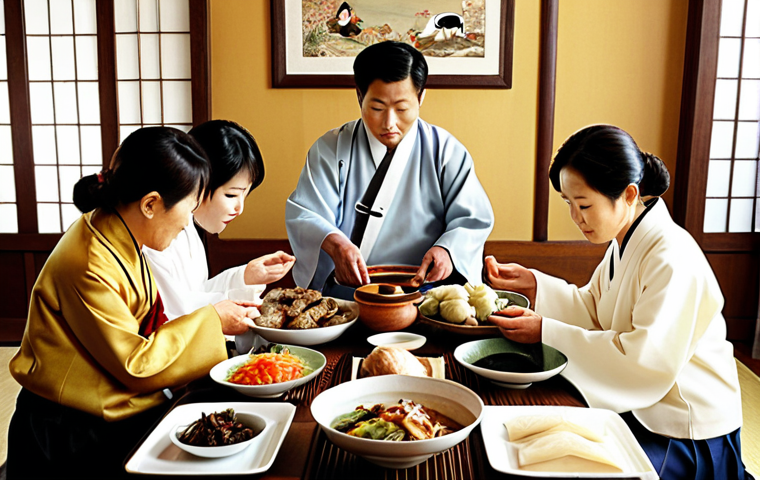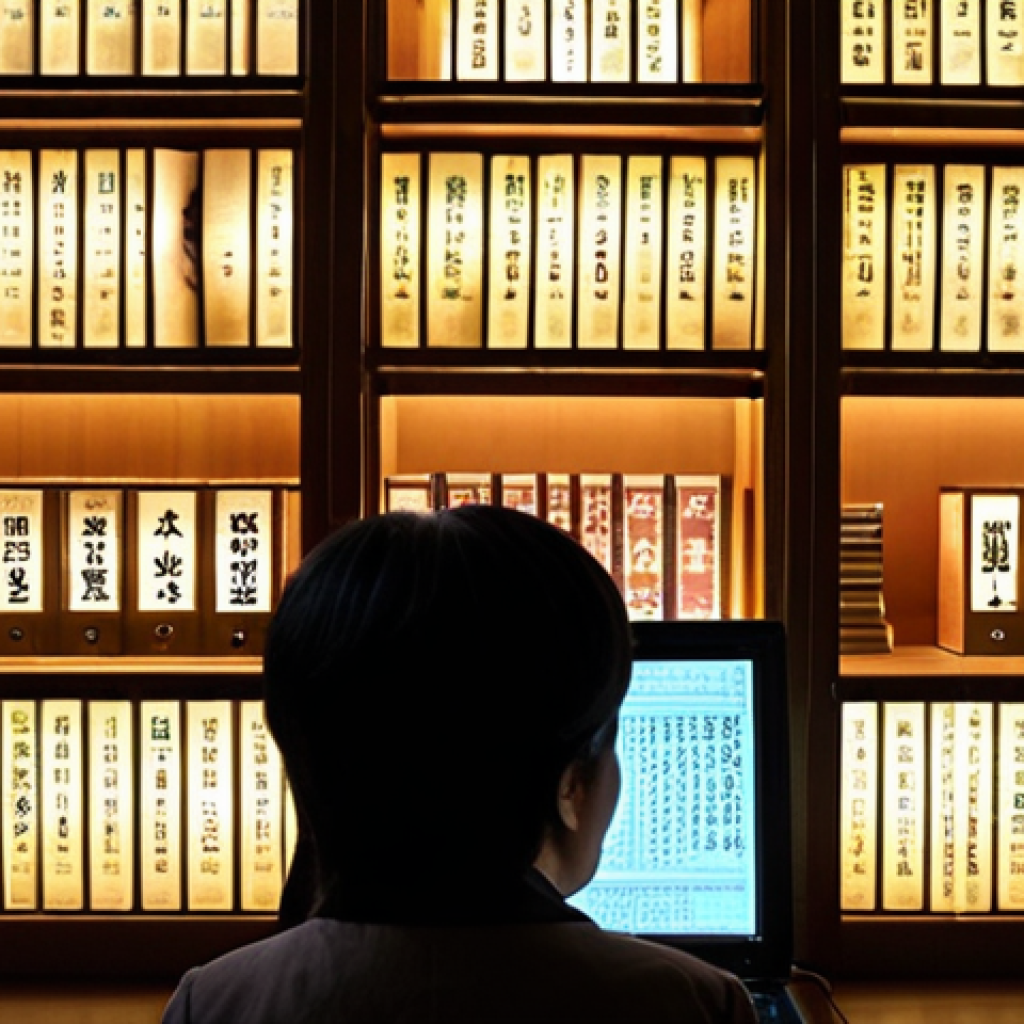Embarking on a genealogical journey is always fascinating, but when it involves tracing Korean ancestry from a foreign perspective, things get even more intriguing.
It’s like piecing together a complex puzzle where the pieces themselves are shaped by different cultures and expectations. The rise of DNA testing services has added another layer to this, offering concrete (yet sometimes confusing) data to support or challenge existing family narratives.
Furthermore, the increased accessibility of Korean historical records online, even in English, is making this pursuit more manageable than ever before.
But what are the real challenges and unique perspectives when foreigners attempt to trace their Korean roots? Let’s dive deeper into this fascinating topic!
Let’s find out more about this in the following article.
Navigating the complexities of Korean ancestry as a foreigner involves unique challenges and perspectives. Let’s explore some key aspects.
Unveiling the Mystery: Deciphering Korean Family Records

Korean genealogy, unlike Western systems, is deeply rooted in clan affiliations and hierarchical structures. Discovering your family’s *bon-gwan* (본관, ancestral seat) is crucial.
My own experience was a crash course in this. I spent weeks poring over digitized records, many of which were in classical Chinese – a language I definitely hadn’t brushed up on since college!
The local library in Seoul, with its patient librarians and surprisingly comprehensive English resources, became my second home.
The Bon-gwan Connection
1. The *bon-gwan* links you to a specific geographic origin, often a town or region in Korea, and serves as the foundation of your clan identity. This is like discovering the original family estate, and is fundamental to understanding your place within the larger Korean diaspora.
2. Finding this information can be difficult because the older documents are often handwritten and use traditional characters that differ significantly from modern Korean script.
3. *Jokbo* (족보), or genealogical records, are organized by *bon-gwan*, detailing lineage charts and notable ancestors. These documents are a treasure trove, but they can also be a labyrinth.
The Language Barrier and Translation Tools
Navigating historical Korean texts presents a significant hurdle. I found online translation tools helpful for basic understanding, but nothing beats consulting with a Korean language expert specializing in genealogy.
A crucial part was learning some basic Korean phrases and common genealogical terms. It not only helped with translations, but also showed respect for the cultural context of my research.
Digital Resources
* The National Archives of Korea offers a wealth of digitized documents, but navigating the website can be challenging. * FamilySearch has a growing collection of Korean genealogical records, many of which are indexed and searchable in English.
* Several online communities and forums are dedicated to Korean genealogy, providing invaluable support and resources.
DNA Testing: A Tangible Link to the Past?
DNA testing has become an increasingly popular tool for tracing ancestry, offering a concrete link to genetic heritage. However, interpreting DNA results in the context of Korean ancestry requires careful consideration.
Understanding Korean DNA Markers
Korean DNA is characterized by specific genetic markers that can differentiate it from other East Asian populations. However, broad generalizations should be avoided, as regional variations and historical migrations can complicate the picture.
I remember one instance where a friend’s DNA results showed a higher than expected percentage of Japanese ancestry. It turned out that their family had lived in a region of Korea with a history of cultural exchange with Japan, which was reflected in their genetic makeup.
The Limitations of DNA Testing
DNA testing can provide valuable clues, but it’s important to recognize its limitations. DNA results may not always align with traditional genealogical records, due to factors like adoption, undocumented relationships, or simply the limitations of the testing technology.
Also, keep in mind that DNA testing predominantly reveals ethnic origins rather than specific familial lineages.
Choosing the Right DNA Test
Different DNA testing companies offer varying levels of detail and focus on different ancestral populations. When researching Korean ancestry, it’s important to choose a test that has a strong reference population for East Asia.
Popular options include AncestryDNA, 23andMe, and MyHeritage DNA.
Cultural Sensitivity: Respecting Ancestral Traditions
Tracing Korean ancestry is not just about collecting names and dates. It’s about understanding and respecting the cultural traditions that have shaped your family history.
The Importance of Ancestral Veneration
In Korean culture, honoring ancestors is a deeply ingrained tradition. This involves participating in ancestral rites (jesa) and maintaining family gravesites with care.
I had the opportunity to participate in a *jesa* ceremony at my relative’s home. It was a humbling experience that connected me to generations past and gave me a deeper appreciation for the importance of family in Korean society.
Navigating Generational Differences
When discussing family history with older relatives, it’s important to be sensitive to generational differences and cultural nuances. Older family members may have different perspectives on the past, and may not be comfortable sharing certain information.
Patience and respect are key to building trust and uncovering valuable insights.
Preserving Family Stories
Gathering oral histories from family members is crucial to preserving your family’s legacy. These stories can provide a rich tapestry of details that are not found in written records.
I found recording interviews with older relatives invaluable. They shared anecdotes, memories, and perspectives that brought my family history to life.
Leveraging Online Resources and Communities
The internet has revolutionized genealogical research, providing access to a vast array of resources and communities.
Online Databases and Archives
Numerous online databases and archives offer access to Korean genealogical records, historical documents, and other resources.
Genealogy Forums and Social Media Groups
Joining genealogy forums and social media groups can connect you with other researchers who share your interests. These communities can provide valuable support, guidance, and insights.
Connecting with Distant Relatives
Online platforms can help you connect with distant relatives who may have information about your family history. Reaching out to these individuals can unlock new branches of your family tree.
Overcoming Common Hurdles in Korean Genealogy
Tracing Korean ancestry can present unique challenges, but with perseverance and the right resources, these hurdles can be overcome.
Name Variations and Romanization Issues
Korean names can be romanized in various ways, making it difficult to track individuals across different records.
Limited Availability of Records
Historical records may be incomplete or unavailable due to war, natural disasters, or simply the passage of time.
Understanding Korean Social Structures
Korean society has traditionally been structured around hierarchical relationships and social classes. Understanding these structures can provide valuable context for your genealogical research.
Here’s a table summarizing the key resources:
| Resource Type | Description | Example |
|---|---|---|
| Online Databases | Digitized records, family trees | FamilySearch, National Archives of Korea |
| DNA Testing | Genetic ancestry analysis | AncestryDNA, 23andMe |
| Genealogy Forums | Community support, research tips | RootsWeb, Genealogy.com |
| Language Tools | Translation and interpretation | Google Translate, Papago |
| Local Libraries | Access to physical records, expert assistance | National Library of Korea |
The Emotional Connection: Building a Sense of Identity
Beyond the historical facts and figures, tracing Korean ancestry can provide a profound emotional connection to your heritage.
Discovering Your Cultural Identity
Learning about your ancestors can help you understand your own cultural identity and sense of belonging. I found that as I pieced together my family’s history, I began to understand aspects of my own personality and values that I had never fully appreciated before.
Connecting with the Korean Diaspora
Tracing your roots can connect you with the global Korean diaspora, allowing you to share experiences and perspectives with others who have similar heritage.
Creating a Legacy for Future Generations
Documenting your family history can create a lasting legacy for future generations, ensuring that their ancestors are remembered and honored.
Preserving Your Research: Documentation and Sharing
It’s essential to document your research findings and share them with family members and other interested parties.
Creating a Family Tree
A family tree provides a visual representation of your ancestry, making it easier to understand and share your findings.
Writing a Family History Narrative
A family history narrative can bring your research to life, weaving together the stories of your ancestors in a compelling and engaging way.
Sharing Your Research Online
Sharing your research online can connect you with other researchers and provide a valuable resource for future generations.
In Conclusion
Tracing your Korean ancestry is more than just a historical pursuit; it’s a deeply personal journey of self-discovery. It’s about connecting with the stories of those who came before you, understanding your cultural identity, and preserving a legacy for future generations. Embrace the challenges, celebrate the discoveries, and cherish the emotional connection to your roots.
Helpful Tips to Know
1. Always double-check romanizations of Korean names across different databases, as variations can lead to confusion. Consider using a consistent romanization system.
2. Visit Korean cultural centers or museums in your local area. These places often have resources and exhibits that can provide additional context for your family history.
3. If possible, try to learn some basic Korean. Even a few phrases can greatly enhance your ability to navigate Korean genealogical resources and communicate with relatives.
4. Attend Korean cultural events and festivals. Immersing yourself in Korean culture can deepen your understanding of your heritage and connect you with other members of the Korean diaspora.
5. Document everything thoroughly. Keep detailed notes of your research process, sources, and findings. This will help you stay organized and avoid repeating the same research.
Key Takeaways
Uncovering Korean ancestry involves navigating complex records and cultural traditions. DNA testing offers clues, but cultural sensitivity and leveraging online resources are crucial. Overcoming hurdles like name variations and limited records requires perseverance. Ultimately, it’s about building an emotional connection and preserving family history for future generations.
Frequently Asked Questions (FAQ) 📖
Q: I’ve heard DN
A: tests can be helpful in tracing Korean ancestry. Are they accurate, especially for someone with a mixed heritage like mine? A1: Well, based on my own experiences, DNA tests are a great starting point, but they’re not crystal balls.
Think of them as giving you a general direction rather than a precise pinpoint on a map. For Koreans, the reference populations in these tests can be a bit broad, so you might get a percentage that doesn’t quite match your expectations based on family stories.
And if you have a mixed background, say half Korean and half Irish, the results could be even more generalized. I learned this the hard way when my test showed a lower Korean percentage than anticipated, but digging deeper, I realized that understanding the nuances of the reference populations is key.
Plus, the more relatives you get to test, the better the context you’ll have to interpret the results. AncestryDNA and 23andMe are popular choices, and they offer some useful tools, but remember, it’s just one piece of the puzzle.
Q: What are some of the biggest challenges a foreigner might face when researching Korean genealogy, especially when they don’t speak Korean?
A: Oh man, where do I even begin? Language is definitely the biggest hurdle. Imagine trying to navigate legal documents in a language you don’t understand – it’s like trying to solve a Rubik’s Cube blindfolded!
While more and more Korean historical records are becoming available online in English (thank goodness!), a lot of the vital information is still locked away in Korean.
Plus, even if you find something translated, the nuances and context can be easily lost. I found myself relying heavily on Google Translate, which is…
well, let’s just say it’s not always accurate! I also struggled to find reliable resources and databases specific to Korean genealogy in English. The records often follow different naming conventions, and understanding the clan system (Bongwan) is crucial.
It’s like trying to find a specific Smith in the US without knowing what state they lived in! My advice? Connect with Korean genealogical societies, hire a translator or genealogist specializing in Korean ancestry, and be prepared for a long and winding road.
Q: Okay, let’s say I find some promising leads. What kind of Korean records are typically available, and how accessible are they to someone living overseas?
A: That’s the million-dollar question! Thankfully, there are quite a few types of records that you might be able to access. Family registers (족보 or Jokbo) are goldmines of information, although they are more likely to be available for noble or Yangban families.
Census records, land records, and government documents can also provide valuable insights. But here’s the catch – accessibility. Many of these records are not digitized and are kept in local archives in Korea.
If you’re overseas, you’ll likely need to rely on someone in Korea to access them for you. I found some success by contacting local historical societies and libraries in the region where my ancestors lived.
They often have staff who can assist with research, even if you don’t speak Korean. Another option is to hire a professional genealogist in Korea who can navigate the system and access these records on your behalf.
It might cost you some money, but it can save you a huge amount of time and frustration. Remember to be patient and persistent – tracing your Korean roots is a marathon, not a sprint!
📚 References
Wikipedia Encyclopedia
구글 검색 결과
구글 검색 결과
구글 검색 결과
구글 검색 결과
구글 검색 결과






